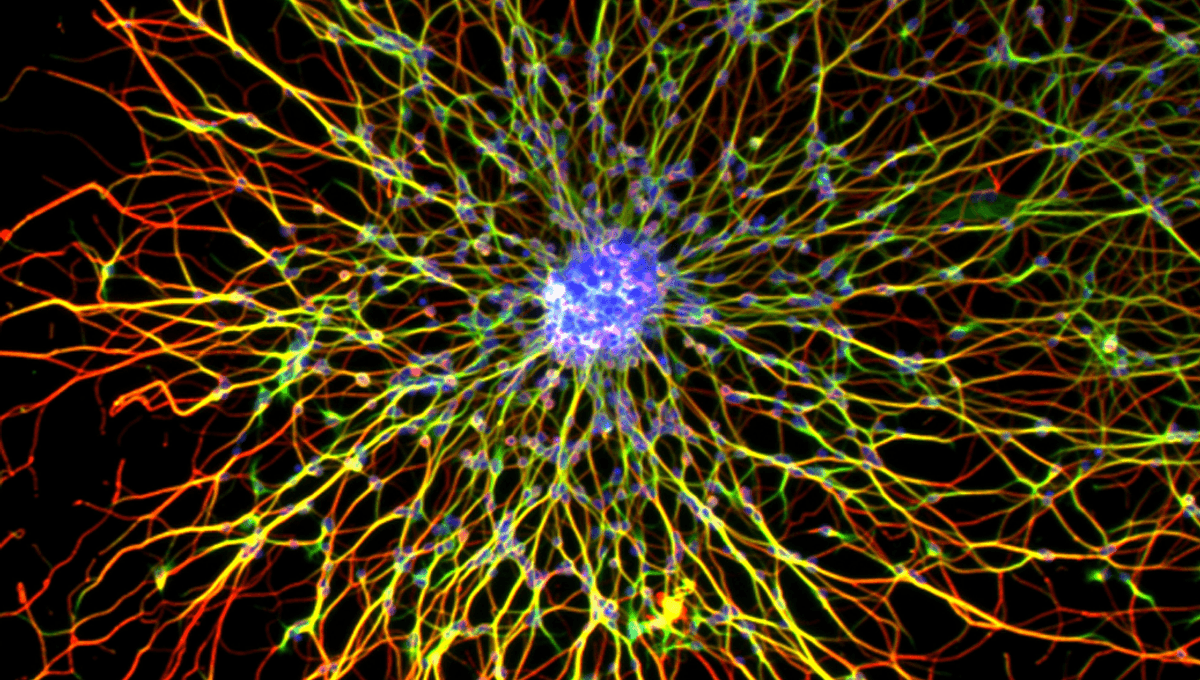
Scientists have fused human brain tissue to a computer chip, creating a mini cyborg in a petri dish that can perform math equations and recognize speech.
Dubbed Brainoware, the system consists of brain cells artificially grown from human stem cells, which have been fostered to develop into a brain-like tissue. This mini-brain organoid is then hooked up to traditional hardware where it acts as a physical reservoir that can capture and remember the information it receives from the computer inputs.
The researchers wanted to explore the idea of exploiting the efficiency of the human brain’s architecture to supercharge computational hardware. The rise of artificial intelligence (AI) has massively increased the demand for computing power, but it’s somewhat limited by the energy efficiency and performance of the standard silicon chips.
“We wanted to ask the question of whether we can leverage the biological neural network within the brain organoid for computing. This is just proof-of-concept to show we can do the job,” Feng Guo, study author and a bioengineer in the Department of Intelligent Systems Engineering at Indiana University, told Tech Xplore.
To flex the muscles of the hybrid bio-computer, the researchers presented it with 240 audio clips of people saying different Japanese vowel sounds. Remarkably, the system is capable of learning the different sounds and recognizing them with approximately 78 percent accuracy.
It was also tasked to predict a Hénon map, a nonlinear dynamic system in mathematics, which it did with reasonable accuracy.
Bear in mind that this is nowhere near the hyper-intelligent capabilities of conventional AI systems – the threat of sentient Frankenstein biocomputers is currently not on the horizon. Nevertheless, for a first-of-its-kind study, the results are pretty promising.
“This is a first demonstration of using brain organoids [for computing],” added Guo. “It’s exciting to see the possibilities of organoids for biocomputing in the future.”
It holds great potential, but it also raises some tricky ethical questions. In an accompanying News & Views article, a trio of researchers not directly affiliated with the study warned that this pioneering study highlights the need to iron out the ethical conundrums of this technology before it really takes off.
“In the next few years, increasingly complex neural systems that can interact with increasingly complex artificial environments are likely to emerge. As the sophistication of these organoid systems increases, it is critical for the community to examine the myriad of neuroethical issues that surround biocomputing systems incorporating human neural tissue,” they write.
“It may be decades before general biocomputing systems can be created, but this research is likely to generate foundational insights into the mechanisms of learning, neural development, and the cognitive implications of neurodegenerative diseases,” the scientists add.
The new study is published in the journal Nature Electronics.
Source Link: Hybrid Biocomputer Fuses Human Brain Tissue With Computer Chips